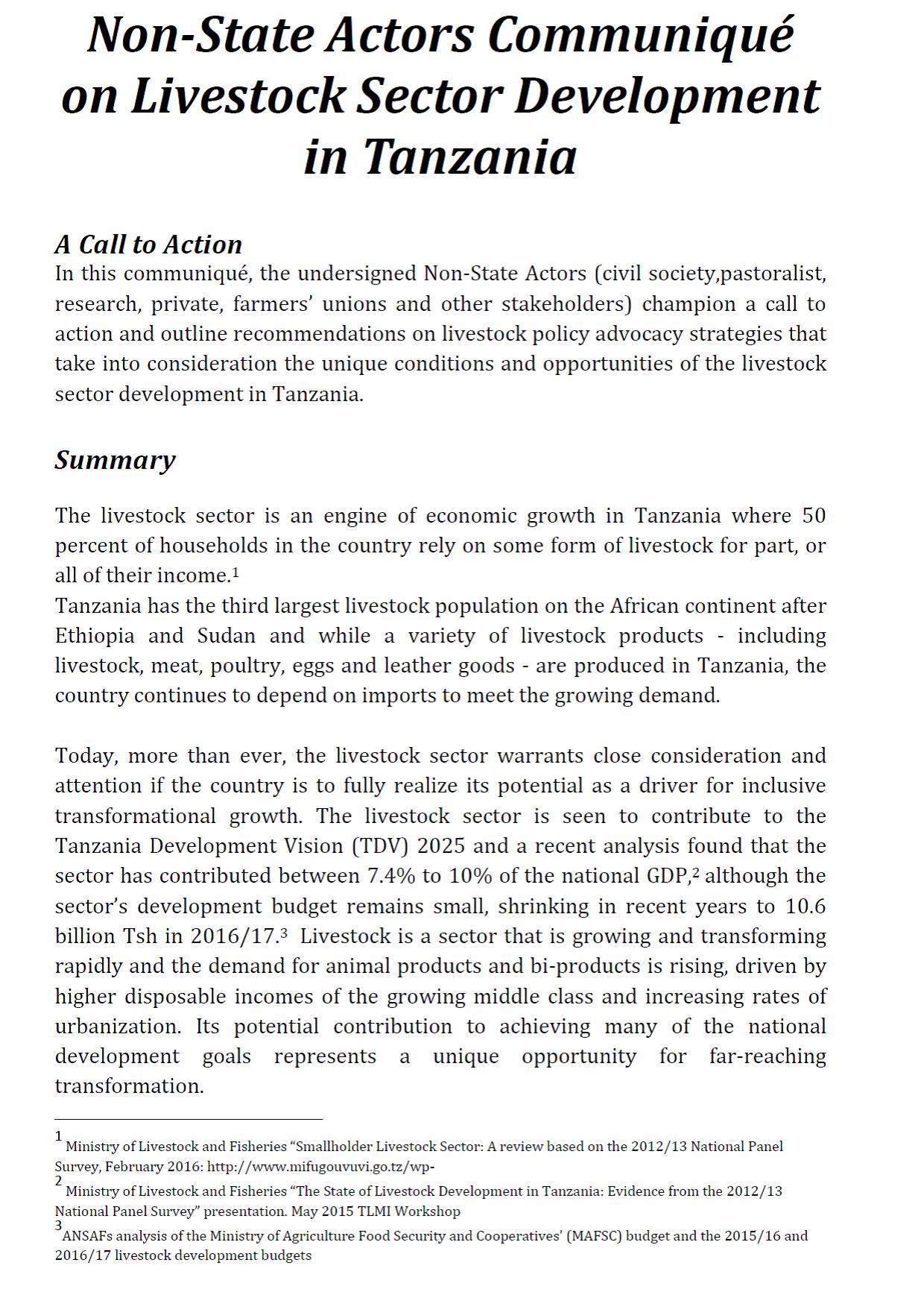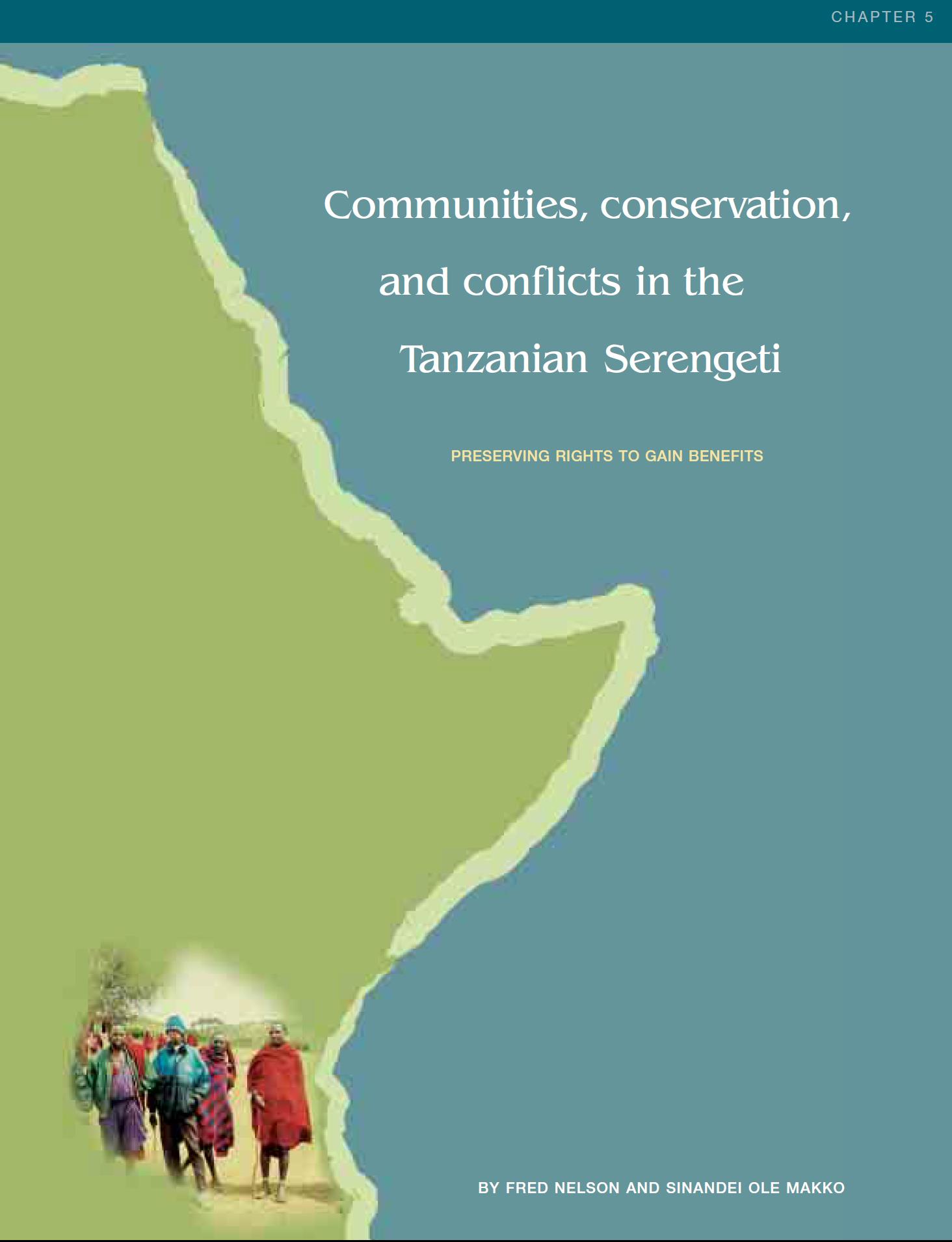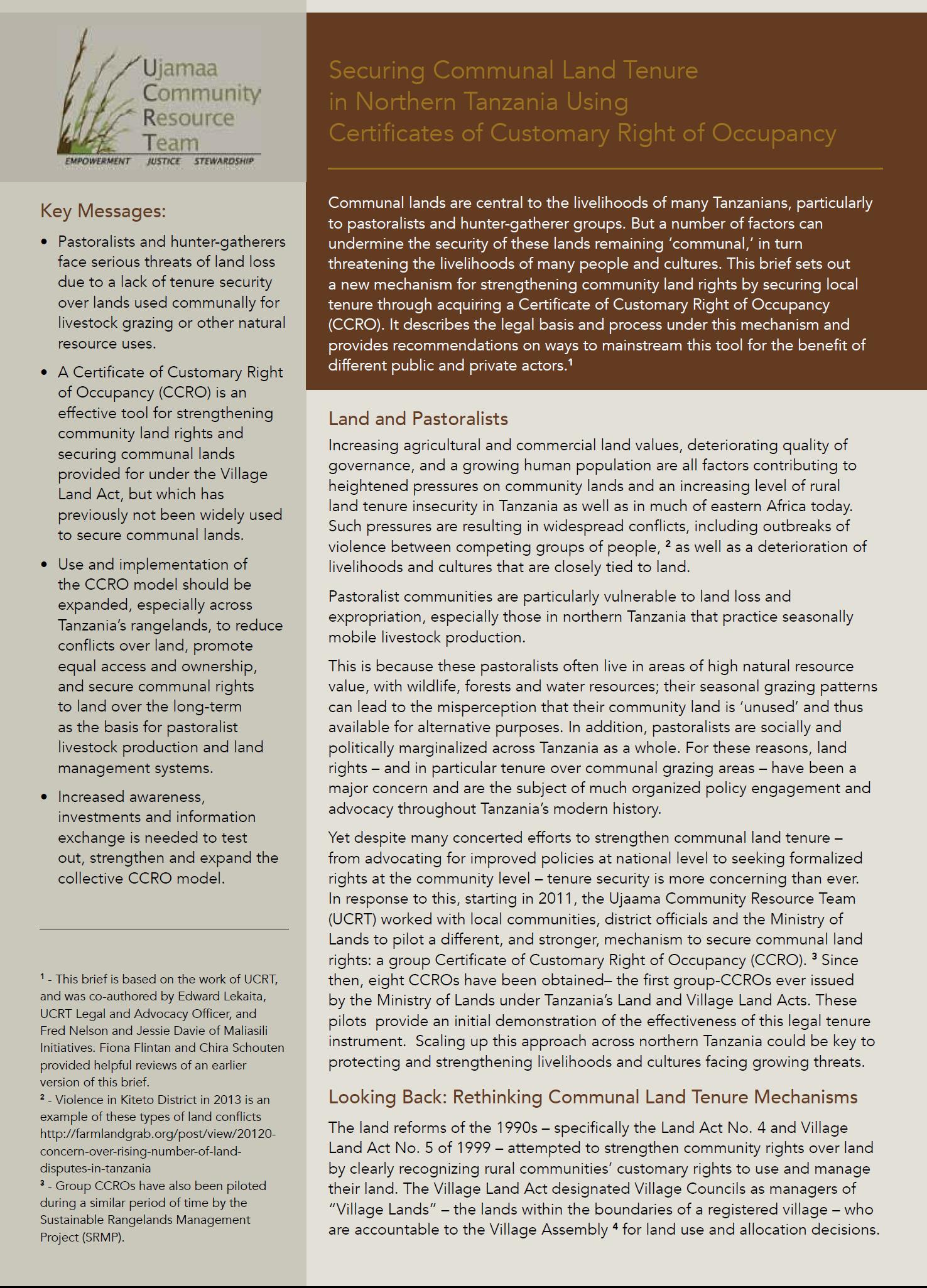Securing pastoralists’ land tenure rights
Formal land titles are rare in pastoral communities around the world. In the past, this presented hardly any problems, since pastoral land was seen as of little use by most outsiders. But with growing competition for areas legal uncertainty is becoming an increasing threat to the livelihoods of pastoralists.
The Horn of Africa: confl ict prevention through regional mechanisms
The Horn of Africa is one of the most conflict-prone areas of the world. It is also home to about 20 million pastoralists, which keep moving with their livestock in search for grazing land and water points. Pastoral conflicts are becoming more and more serious. CEWARN - a regional mechanism for preventing conflicts - tries to close the gap between 'early warning' and 'early response'.
Impacts of Climate Change on Land Use Patterns and Livelihoods of Pastoralists and Hunter Gathers
Over the years, PINGOs Forum has been concerned with the future of Pastoral and HunterGatherer communities with regard to changing patterns of traditional land use and livelihoods options. The information gathered from the past studies have risen much concern on the side of PINGOs Forum that perhaps climate change may have a serious bearing in the land use patterns and livelihoods of Pastoralists and Hunter-gatherers. As a result of this concern, PINGOs Forum decided to embark on a study to observe changes that have occurred in land use patterns in recent years.
Soci0-Economic Contribution of Pastoralism as a Livelihood System in Tanzania
Tanzania is endowed with numerous resources including livestock. It is number three country in Africa in terms of livestock population after Ethiopia and Sudan. Currently, the country (Tanzania) has more than 22 million livestock, of which at least 95% are indigenous animals kept under traditional livelihood model known as indigenous pastoralism. At least 70% of Tanzanians earn their living through agro-pastoralism whereby around 40% of them entirely practices indigenous pastoralism.
Fact Finding Mission on the Impact of Wildlife Investment in Pastoralist Areas of Monduli, Simanjiro, Babati and Kondoa
This fact finding is the fulfilment of PINGO’s Forum daily activities for inquiring the challenges facing pastoralists communities. In this fact finding, we will look at the impact of wildlife conservations in pastoralists areas. The Wildlife sector has become a threat to livestock sectors by which the wildlife sector is grabbing livestock grazing areas in the name of wild life conservation. In this fact finding we will look at the impact of established Randile Wildlife Management Area (RWMA) into the grazing area of Lolkisale village among other five villages forming the WMA.
Eviction of Pastoralists from Kilombero and Rufiji Valleys, Tanzania
This report springs from series of field visits.Its aim was, among others, to examine further the extent of human rights violations suffered by pastoralists in Kilombero and Rufiji valley during the evictions. It additionally makes recommendations including the need for lobbying against the State’s contempt of court orders
Non-State Actors Communiqué on Livestock Sector Development in Tanzania
In this communiqué, the undersigned Non-State Actors (civil society,pastoralist, research, private, farmers’ unions and other stakeholders) champion a call to action and outline recommendations on livestock policy advocacy strategies that take into consideration the unique conditions and opportunities of the livestock sector development in Tanzania.
Communities, Conservation, and conflicts in the Tanzanian Serengeti
This chapter addresses issues related to securing access and rights to resources, and gaining benefits from the resource within the context of one community-based initiative in the village of Ololosokwan in Tanzania.
Participatory Land Use Planning as a Tool for Community Empowerment in Northern Tanzania
This paper presents several case studies to show how the Ujamaa Community Resource Team (UCRT) has been working within Tanzania’s legal and policy framework to support a diverse range of pastoralists, agro-pastoralists and hunter-gatherers, all of whom face fundamental threats from external appropriation of, or encroachment on, lands and natural resources. The work also responds to local needs to rationalise resource use rights amongst competing local groups, such as farmers and livestock keepers.
Securing Communal Land Tenure in Northern Tanzania Using Certificates of Customary Right of Occupancy
Communal lands are central to the livelihoods of many Tanzanians, particularly to pastoralists and hunter-gatherer groups. But a number of factors can undermine the security of these lands remaining ‘communal,’ in turn threatening the livelihoods of many people and cultures. This brief sets out a new mechanism for strengthening community land rights by securing local tenure through acquiring a Certificate of Customary Right of Occupancy (CCRO).












